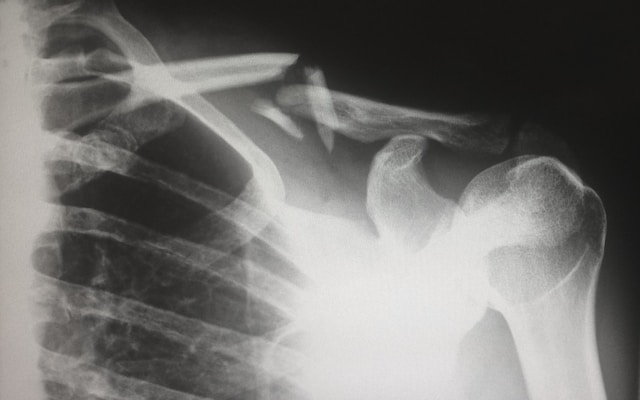
Personal injury cases can be difficult and stressful to deal with. Knowing your way around the legal system is crucial to protecting your rights and obtaining just compensation, no matter how you were hurt—a vehicle crash, a slip, and fall, or something else entirely. Following the six steps outlined in this article can make a world of difference when dealing with a personal injury case. So, dive into these priceless insights and arm yourself with the knowledge you’ll need to make the greatest decisions for your situation.
Contact a Doctor Immediately
Get medical help as soon as possible while dealing with a personal injury case. No matter how seemingly insignificant your injuries are, you should prioritize your health and safety above all else. It’s crucial to see a doctor as quickly as possible because certain injuries may not exhibit immediate symptoms but nonetheless deteriorate over time. Furthermore, it is essential to get complete medical paperwork as it will serve as significant evidence of the injuries experienced and the care that was required. You can strengthen your personal injury claim by putting your health first and collecting the appropriate medical documentation.
Amass Proof & Paperwork
It is crucial to collect evidence and documentation while dealing with a personal injury lawsuit. Document the scene, any injuries, and any damage to vehicles or buildings with photographs. Obtain the names and contact information of anyone who may have seen the event. It is advisable to keep all relevant documentation, including health records, reports from police, and contact with insurance companies. Your case for guilt and the amount of your damages will be strengthened by providing as much proof as possible. Your attorney’s efforts to advocate for your rights and negotiate with insurance companies to achieve reasonable compensation for your injuries and losses will be substantially aided by the availability of sufficient evidence.
Additionally, consider the potential benefits of plaintiff investment funding. This type of funding can provide the financial support needed to cover living expenses, medical bills, and other costs while your lawsuit is ongoing. With adequate proof and documentation, securing plaintiff investment funding becomes more feasible, as lenders will have a clear understanding of the strength of your case.
Talk to a Skilled Lawyer
It is highly recommended that anyone dealing with a personal injury case get the advice of a qualified attorney. You may be confident that your rights will be zealously preserved when you select a skilled personal lawyer to represent you. They will fight for you, negotiate with insurers, and assist you in claiming reimbursement for your losses. With a personal injury lawyer on your side, you may trust that your case is in capable hands while focusing on getting better. Their insight and experience will be invaluable as you work to establish liability and strengthen your case in pursuit of the financial recovery you deserve.
Insurers’ Adjustment Staff: Proceed with Caution
Always be cautious when speaking with insurance adjusters about your personal injury claim. Even though they may seem sympathetic and helpful, their main objective is to safeguard the insurance firm’s financial interests. Before making any documented comments that can be used against you, it is essential to speak with a lawyer. Don’t make any assumptions about the accident or your injuries; be careful about what you sign. It is advisable to let your lawyer handle the insurance company if you have been wounded. You may trust their knowledge and experience to protect your rights and negotiate on your behalf to secure a satisfactory settlement for your losses.
Record All Losses and Damages
Keeping careful records of financial losses and damages is essential while handling a personal injury lawsuit. Medical, hospital, rehabilitation, and drug costs should all be itemized and recorded. Keep track of the money you’ve lost because of injuries and the time you’ve missed from work or because you can’t do as much job as before. The extent to which the injury has caused you physical discomfort, mental anguish, and a decline in your standard of living should be recorded. If you take the time to compile and deliver this data to your personal injury attorney, you will give them the evidence they need to determine the full degree of your losses and damages. With this evidence in hand, you’ll be in a much better position to negotiate a settlement that adequately compensates you for the suffering you’ve undergone.
Get Yourself Legally Ready
When dealing with a personal injury case, it is crucial to be well-versed in the legal process. Remember that it could require some time and become challenging. You may trust your personal injury attorney to lead the way and keep you apprised of the process’s development and any necessary actions. If a fair settlement can’t be achieved through negotiation or mediation, be patient and open to the prospect of going to court. Your attorney will advise you well and advocate to safeguard your interests. Additionally, exploring plaintiff investment funding options could alleviate financial burdens and provide resources to pursue your case effectively. In order to successfully navigate the legal proceedings and collect the compensation you legitimately deserve for your injuries and losses, it is important to stay informed and keep open communication with your lawyer.
Conclusion
Successfully navigating a personal injury case takes focused attention and well-considered choices. You can better ensure your rights are protected and your prospects of receiving adequate compensation for your losses by adhering to these six guidelines. You should get medical help immediately, but you should also be meticulous in obtaining facts and documents to back up your claim. After an accident, a knowledgeable lawyer can be very helpful in guiding you through the legal process and defending your rights.


